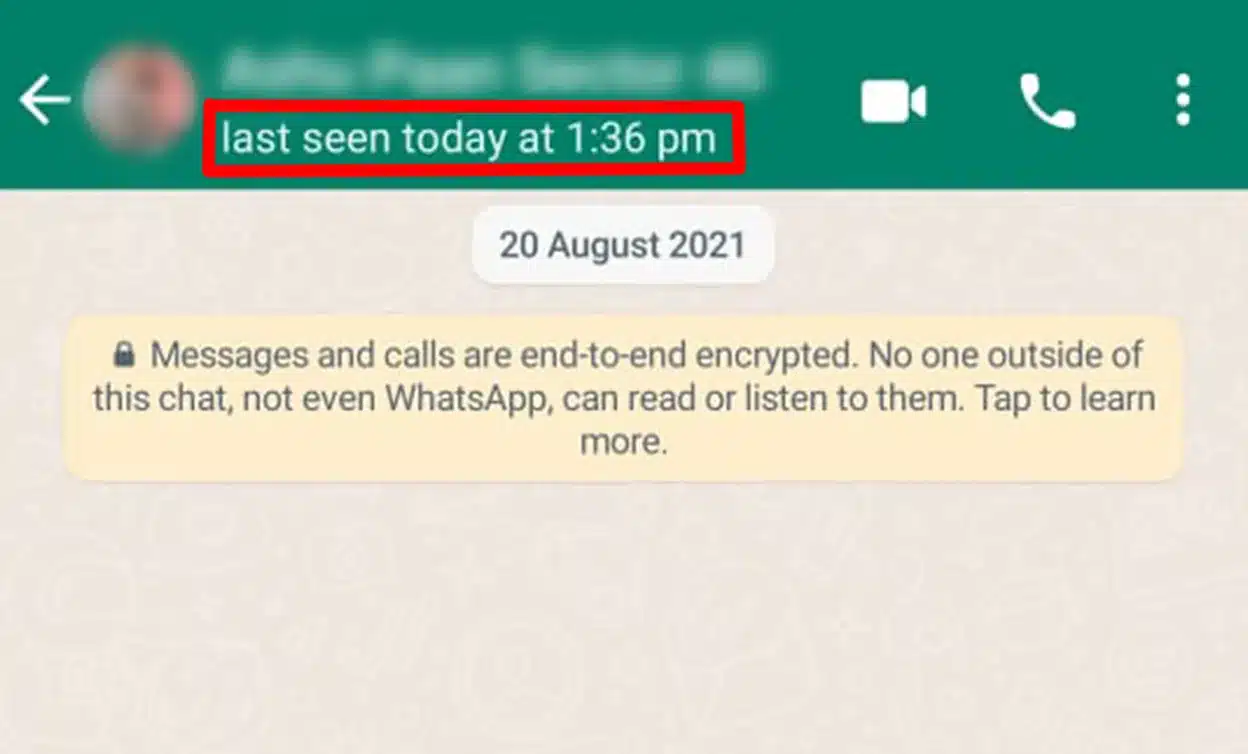
The “Last Seen” feature on WhatsApp is key to how we use the app. It shows when someone was last active, giving us a peek into their online life. This info can make talking easier, but it also raises privacy issues.
It’s vital to remember that the “Last Seen” feature doesn’t always show the latest activity. Many people change their settings to keep their activity private. Knowing how to use this feature wisely is important for chatting on WhatsApp.
How “Last Seen” Differs from “Online” and “Typing”
WhatsApp status indicators can sometimes confuse us. It’s key to know each term for clear communication. The “Last Seen” feature shows when someone last used the app. Other indicators have their own roles.
Understanding the Terminology
The “Online” status shows when someone is using WhatsApp. It changes to “Online” when they open the app, not just when they send a message. The “Typing” status shows when someone is writing a message, giving a quick peek at their activity.
The “Last Seen” timestamp just tells you when someone last opened the app. This can lead to confusion if someone looks “Last Seen” hours ago but is “Online” if they open it again. Knowing these differences helps avoid misunderstandings.
| Status Indicator | Description | Example |
|---|---|---|
| Last Seen | Indicates the last time the user opened WhatsApp. | Last Seen: 2 hours ago |
| Online | Shows the user is currently active on WhatsApp. | Online |
| Typing | Indicates the user is currently composing a message. | Typing… |
Knowing these terms helps us understand others’ availability and activity. This improves how we communicate on the platform.
How Accurate Is the “Last Seen” Timestamp?
The accuracy of the “Last Seen” timestamp can be affected by many factors. These factors include how the timestamp is shown to users. It usually shows when a user last opened the app. However, delays can happen due to poor internet, server problems, or app issues.
Changing privacy settings can also affect the accuracy. For example, if someone doesn’t share their online status, the timestamp might be wrong. Also, if someone turns off their internet, the app can’t send updates. This makes the timestamp less accurate.
| Factor | Impact on Accuracy |
|---|---|
| Connectivity Issues | Delays in updating the timestamp |
| Privacy Settings | Potential discrepancies in visibility |
| App Performance | Inconsistent timestamp displays |
| Data/Wi-Fi Disabled | No updates, outdated timestamps shown |
Knowing these factors helps users understand the “Last Seen” feature better. It helps avoid misunderstandings about someone’s availability. The accuracy of the “Last Seen” is key in keeping conversations clear and avoiding misinterpretations.
Reasons You Can’t See Someone’s “Last Seen”
There are many reasons why you might not see someone’s “Last Seen” on WhatsApp. One big reason is their privacy settings. They might choose to show their status to only certain people or turn it off.
If someone has blocked you, you won’t see their “Last Seen” status. This is because blocking someone cuts off all access to their info on WhatsApp.
Technical issues can also cause problems. If someone has uninstalled WhatsApp, you won’t see their “Last Seen” status. Network problems might also make it hard to see this info, even if the other person hasn’t changed anything.
How to Control or Hide Your Own “Last Seen”
WhatsApp lets users manage their privacy with the “Last Seen” settings. This feature allows you to pick who sees when you were last active. You can choose from “Everyone,” “My Contacts,” or “Nobody.”
By changing these settings, you can hide your last seen status from certain groups or people. This helps keep your privacy safe while using WhatsApp.
To control your last seen settings, follow these steps:
- Open the WhatsApp application.
- Navigate to the “Settings” menu.
- Select “Account” and then tap on “Privacy.”
- Under the “Last Seen” section, choose your preferred visibility option.
If you hide your last seen status, you won’t see others’ either. This shows how important it is to think about your privacy choices.
Changing these settings helps you control who sees you on WhatsApp. It makes your messaging experience safer and more private.
Common Misunderstandings About “Last Seen”
The “Last Seen” feature in WhatsApp often leads to confusion. Many think it shows when someone last replied to a message. But, it actually shows when the app was last opened. This difference changes how people see it.
Another big mistake is thinking a hidden “Last Seen” means someone is ignoring you. People believe it means the person is offline or not talking to them. But, it could mean they’re chatting with others or just chose to hide their status.
It’s also easy to forget that the “Last Seen” time might not be up to date. This misunderstanding can make people think someone is not available or doesn’t want to talk. Knowing these facts helps clear up confusion and makes talking easier.
| Misunderstanding | Clarification |
|---|---|
| Timestamp shows when a reply was sent | Indicates when the app was last opened |
| Hidden status means ignoring messages | User could be active or selective with privacy settings |
| Last Seen updates in real-time | Timestamp may not refresh instantly |
FAQ
“Last Seen” on WhatsApp shows when someone was last active on the app. It tells you when they last opened WhatsApp and interacted with messages. This gives you a clue about their recent activity.
“Last Seen” shows when someone last used WhatsApp. “Online” means they’re active now. “Typing” means they’re writing a message. These differences help avoid confusion in chats.
The “Last Seen” timestamp isn’t always perfect. It usually shows when someone last opened WhatsApp. But, delays can happen due to app problems, network issues, or privacy settings.
You might not see someone’s “Last Seen” if they’ve changed their privacy settings. It could also be hidden if they’ve blocked you or uninstalled the app. Network problems might also cause it to disappear.
To control or hide your “Last Seen,” go to “Settings,” then “Account,” and choose “Privacy.” Pick from “Everyone,” “My Contacts,” or “Nobody.” Remember, hiding yours means you won’t see others’ either.
Many think “Last Seen” shows when someone replied to a message. But, it actually shows when they last opened WhatsApp. Also, hiding “Last Seen” doesn’t mean they’re not using the app.
Remember, “Last Seen” doesn’t update instantly. And, what you can see depends on privacy settings. Knowing this helps manage your expectations and avoid making wrong assumptions.
Conclusion
The last seen feature on WhatsApp is key to understanding how we interact. It shows when someone was online, but it’s different from seeing they’re typing. Knowing this helps us use WhatsApp better and keep our privacy safe.
By controlling who sees when we were last online, we can improve our messaging. It helps us be more mindful of our messages. This way, we respect our privacy and that of others.
Being aware of the last seen feature makes us better users of WhatsApp. It lets us communicate with care and respect for privacy. This knowledge helps us have more meaningful and respectful conversations.







